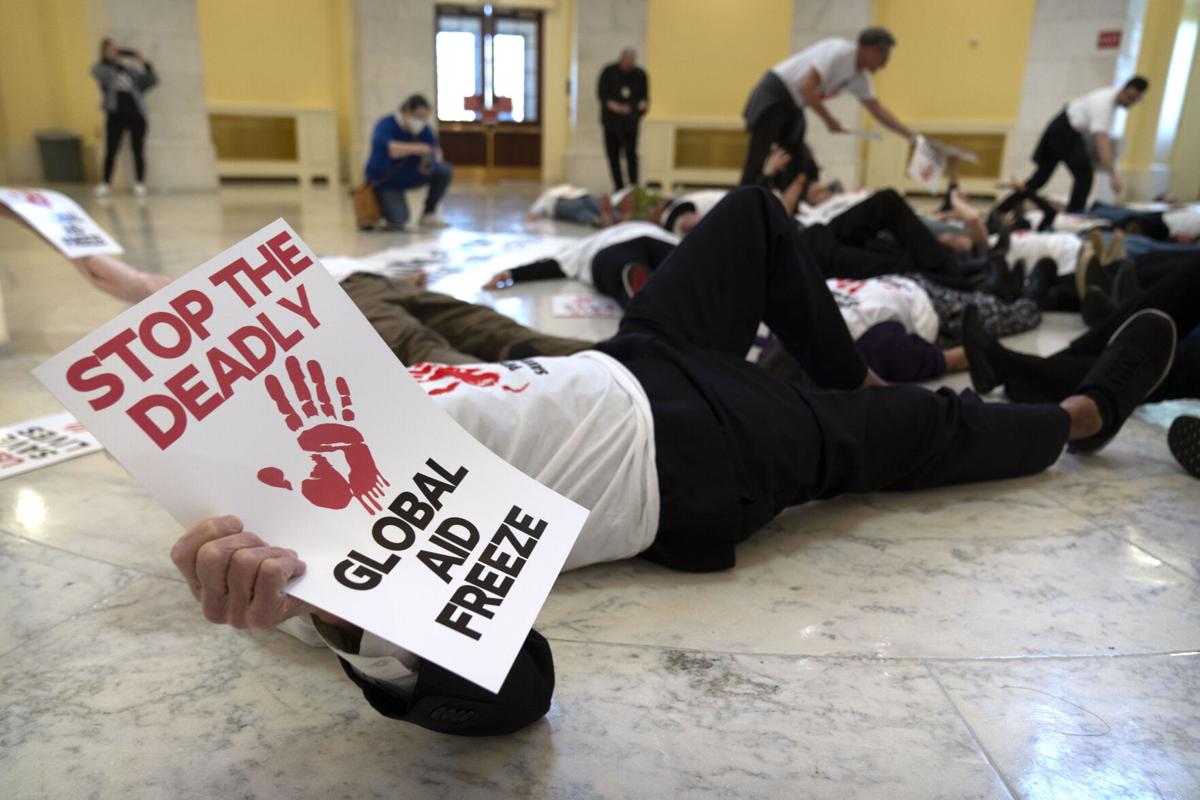The refrain heard during the 2024 Democratic National Convention was: “We Won’t Go Back.” It was a warning many assumed applied only to the racial discrimination of America’s past, but that wasn’t the only issue.
Along with scores of other medical and science research topics being defunded since President Donald Trump was inaugurated for the second time, HIV/AIDS initiatives appear to be high on this administration’s hit list. Failure to remember the history of HIV/AIDS will result in more deaths. This would be a travesty.
Currently, there are television commercials that imply that HIV/AIDS is a simple infection that can be cured, instead of the death-sentence it used to be. But those of us old enough to bear witness to the era (the 1980s) when it first appeared in our country remember the horror and discrimination this infection caused.
President Ronald Reagan refused to mention the disease until the end of his first term and was slow to sponsor any sort of research to develop treatment. Arguably, this delay allowed it to spread.
People are also reading…
It was originally considered a gay-men’s disease, after clusters of gay men in San Francisco developed Kaposi’s sarcoma (KS) and pneumocystis pneumonia. As an employee of the Social Security Administration, I had already been taking Social Security claims for eight years before we started to get disability applications from people with the disease in 1981.
Because no one knew how it was spread, whenever I took a claim from someone who listed this infection as his illness, or even someone who displayed noticeable lesions of KS or the wasting disease that appeared later, I’d pitch the ink pen they used after they left, as did my co-workers.
By 1984, we started to hear about people like Ryan White, who’d contracted the disease from blood products, and suddenly it became viewed as a more universal disease. Once basketball superstar Magic Johnson revealed that he was stepping away from the game in 1991 after testing positive for HIV, funding suddenly appeared from many sources. In fact, 1991 marked the beginning of positive change in the HIV/AIDS universe.
Actress Elizabeth Taylor started her AIDS foundation that year, providing funding for treatment and research. Elton John’s foundation started a year later. Tom Hanks won his second Oscar Award portraying a man dying of the disease. The play “Angels in America” (detailing the AIDS crisis) received both the Pulitzer Prize for Drama as well as the Tony Award for the Best Play. (When it was resurrected as a miniseries in 2003 it won eleven Emmy Awards.)
Television shows like “ER” depicted HIV-infected medical professionals who had to hide their conditions or risk being shunned by coworkers or dismissed from their jobs for specious reasons so their institutions couldn’t be charged with discrimination. Real clients reported similar problems to me at the Social Security Administration.
The New York Post recently did a comprehensive review recently of all the grants that have been canceled or delayed by the National Institute of Health since Trump 2.0 began. While we don’t have a breakdown for all universities, the Post reports that Columbia University has lost at least $108 million in canceled grants, over a dozen of which were related to HIV/AIDS, particularly those related to patients in specific populations.
One of the studies that had previously received $4 million in funding was the study of HIV treatment and outcomes in North America. Another study lost a grant of almost $800,000. Its goal — a plan to reduce racism in HIV care for Black and Indigenous people.
According to the Centers for Disease Control and Prevention, 448,000 people died in the U.S. between 1981 and 1991 due to AIDS related illnesses, while another 322,000 were living with the disease in the same period. Globally, these numbers were in the millions, partly because of unsafe sex practices and the reusing of needles by IV drug users.
In 2024, the CDC reported there were 4,496 deaths in the U.S. from AIDS-related illnesses, with deaths disproportionately occurring in specific populations. Even though there are still thousands of new diagnoses in the U.S. annually, the development of antiviral medications has improved the survival rate considerably.
Undoubtedly, deaths and infections will increase because of these terminated grants, many of which were nearly complete.
It’s bad enough when new applications have been left in limbo or denied for unspecified reasons. It’s worse when scientists have been previously awarded multi-year grants that are suddenly terminated. Thanks to an administration concerned only with money, the fears expressed at the Democratic National Convention last year have been realized: We have indeed gone back.









